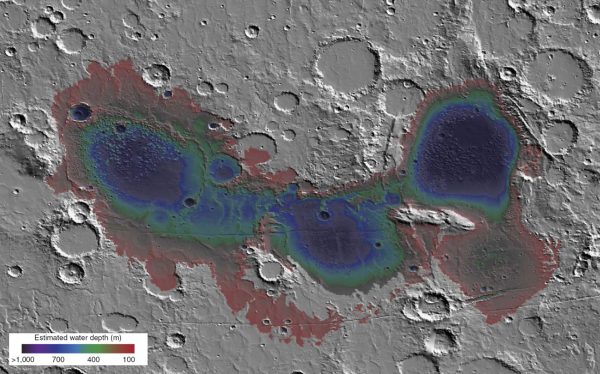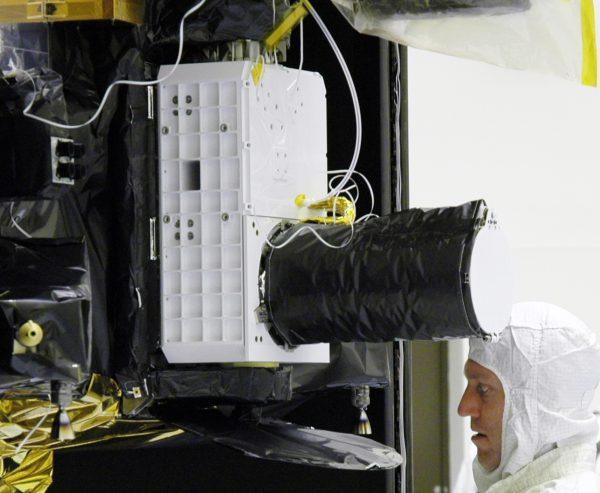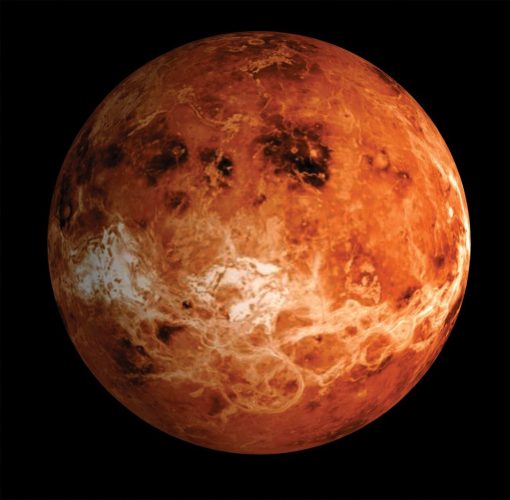These were the discoveries made on Mars that point to the supposed origin of life on Earth

Many wonder where life came from and how the first organisms that inhabited our planet came into being. NASA may have found a possible answer to these questions. These answers lie south of Mars. Theoretically the red planet has already possessed an enormous ocean. Not only that, the planet would have a great index of volcanic activity. The combination of these two factors would be the causes of what we know as life here on Earth. In other words, by observing the remnants of these seas and volcanoes
of Mars, we can have an idea of how the birth of the beings that
evolved and become what we are today.
The Unknown Facts brings to you yet another theory of the origin of the species, but seen within the context of another planet, whose conditions were very similar to that of our Earth billions of years ago. Can Mars be the answer to understanding the origin of all life on Earth?
The Unknown Facts brings to you yet another theory of the origin of the species, but seen within the context of another planet, whose conditions were very similar to that of our Earth billions of years ago. Can Mars be the answer to understanding the origin of all life on Earth?
Where did life come from?
NASA researchers have identified large oceanic reliefs south of Mars and believe that these sites may have been formed by thermal water. These large oceans of heated water would have had a great influence on the ancient volcanic activities of the planet. It is believed that Mars long ago had an immense ocean.
Scientists believe that this discovery could be a great step to understanding the origin of life on earth. The combination of volcanic activities plus these immense water basins form conditions very similar to those of the first days of life on earth. In this way scientists can study more deeply the origin of the organisms of our planet. Mars has no more active volcanoes or oceans around 3.7 billion years ago according to scientists.
Eridania Basin
 Scientists
have found a large amount of mineral deposits within these oceanic
reliefs in one of the oldest parts of Mars, the Eridania Basin. NASA researchers believe the Eridania basin has a huge deep ocean, made up of hot springs. This would be a perfect environment to find life forms that did not depend on an atmosphere, only water, heat and rocks.
Scientists
have found a large amount of mineral deposits within these oceanic
reliefs in one of the oldest parts of Mars, the Eridania Basin. NASA researchers believe the Eridania basin has a huge deep ocean, made up of hot springs. This would be a perfect environment to find life forms that did not depend on an atmosphere, only water, heat and rocks.It is estimated that this ocean would have about 210,000 cubic kilometers of water. The basin represents a major step towards understanding the origin of life on earth and not only that, it opens up new opportunities for astrobiological research on Mars.
The Exploration

This
region of Mars has been explored since 2006. Laurel Maryland of the
University of Applied Physics John Hopkins has designed and operates
CRISM (Compact Reconnaissance Spectrometer for Mars), a device that
identifies minerals from the Eridania Basin and is used to collect the
data cited above.
Who coordinates this mission is NASA in its division in Pasadena, California. She is attached to her Washington directory, which took the initiative of the mission.
Who coordinates this mission is NASA in its division in Pasadena, California. She is attached to her Washington directory, which took the initiative of the mission.
So what did you think of the matter? Do you believe that there may have been life on Mars? Leave your comment and see the next one.

Comentários
Postar um comentário